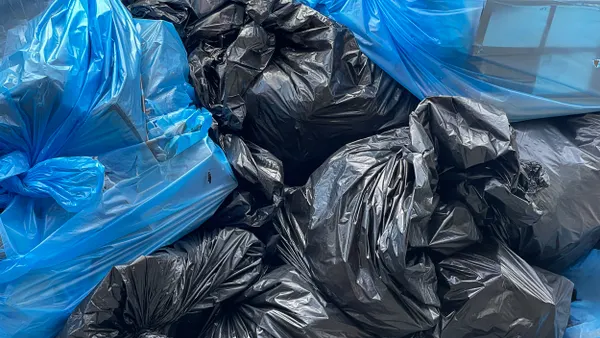Dive Brief:
- Connecticut's recycling law has greatly increased the amount of material collected since it was implemented in 2011, as reported by E-Scrap News. A new report from the Product Stewardship Institute, prepared for the Connecticut Department of Energy and Environmental Protection (DEEP), shows that the state collected 3.7 million pounds in 2009 and 18.6 million pounds in 2015.
- Between 2009 and 2014, the amount of permanent collection sites more than tripled to 273 and per capita rates went up as well. In 2014, the program helped divert 333 tons of lead and offset more than 19 million pounds of carbon dioxide equivalent.
- The program provided $4.4 million in economic benefits for the state in 2014, including the creation of new jobs, though this has come at a higher cost to electronics manufacturers. Last year, manufacturers were paying an average of $0.35 per pound of material recycled.
Dive Insight:
Connecticut's program covers residential televisions, monitors, computers and printers and is serviced by four state-approved recyclers. As evidenced by the report, the costs of this program to manufacturers have been higher than expected and some argue that drop-off sites should be expanded beyond municipal locations where the majority of material is collected.
The report also showed that while they have increased, Connecticut's per capita collection rates are still much lower than some other New England states. More educational outreach has been recommended in response to confusion among some residents, though the existence of electronics recycling options before 2011 may be a factor. Another key recommendation was that the program should be expanded to include schools, non-profits and small businesses.
The role of product lightweighting is also not fully understood and, as seen in others states, an exhausted supply of older, heavier devices from residents could explain the gap in material collection. While no change to Connecticut's law appears imminent it would not be the first state to look at updates to its electronics recycling regulations to adapt to changing technology. New Jersey recently passed a new law that will change the responsibilities of manufacturers and Wisconsin has considered its own update.











